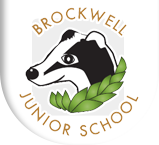“If you talk to a man in a language he understands, that goes to his head. If you talk to him in his language, that goes to his heart.” ― Nelson Mandela
We encourage children to be curious about other cultures and understand many people have different languages. Through French, we want them to enjoy and succeed in communicating using another language, both spoken and written.
What are the end points, goals?
Children will have developed an interest in language acquisition and have a curiosity about languages excited to engage further during the secondary phase.
Children will have an understanding of what they hear and read, and have an ability to express themselves in speech and writing.
Children will have some knowledge of how language works and explore differences between French and English
Children will have strengthened their sense of identity through learning about French culture and comparing it with their own culture.
POURQUOI LA FRANCAIS ?
200 million people speak French around the world, and it is an official language in 32 countries.
French travelled around the world as a colonial language and played a key part in the founding of the United Nations, the Olympic movement and the European Common Market, hence its status, alongside English, as the language of diplomacy.
The British Council recognises the long-held attachment the British have felt to the language.
It forms an aspect of our past. For nearly 400 years when the country was ruled by Norman kings, it was the language of the ruling class of the time – the nobility spoke French, like everyone at the royal palaces and in the judiciary. Many aspects of French culture have become world-renowned and famous i.e. impressionist painters and architechture.
By introducing children to the language and some of the basic aspects during the Junior years the uptake in KS3 and 4 may increase.
